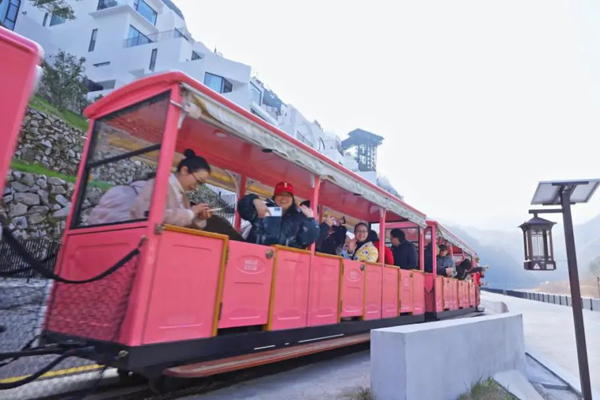'Sweet potato economy' thrives in Lishui's Jingning county

The Nayun Sky City Leisure Resort attracts hordes of tourists during holiday breaks. [Photo/WeChat account: ls-mnews]
Tourists from Shanghai recently fulsomely praised the Nayun Sky City Leisure Resort in Jingning She autonomous county – located in Lishui city, in East China's Zhejiang province.
The complex – which cost 1.5 billion yuan ($217.37 million) – is said to be a pioneering tourism resort that combines sightseeing, leisure, entertainment and cultural experiences.
The project is expected to promote the development of the local tourism industry and broadened the income channels for people in ethnic areas. In the first quarter of this year, it received 21,000 tourists and generated business income of 21.06 million yuan.
Being invested in by local people, the resort is said to be the outcome of the 'sweet potato economy'. This refers to a high-growth model created by Zhejiang. Under it, local people invests in various places in China and overseas – participating in the global supply chain – while keeping its roots firmly in Zhejiang, making the local economy stronger.
This model is also likened metaphorically to a sweet potato – with its vines extending in all directions, absorbing more sunlight, rain and nutrients – and supporting the tubes at the roots to grow bigger and stronger.
Nowadays, capital returns, talent returns and headquarters relocations have become the common markers for the success of Jingning's 'sweet potato economy'.
Jingning has a population of 68,000 people who have left their hometowns over the years – accounting for 40 percent of the total population of the county. In the 1990s, groups of entrepreneurially minded Jingning people headed out to all parts of the country to make a name for themselves.
Today, more than 300 leading large-scale enterprises have been formed across the country, with an annual turnover of more than 60 billion yuan and 120,000 employees.





 play
play